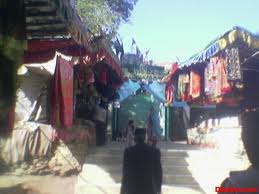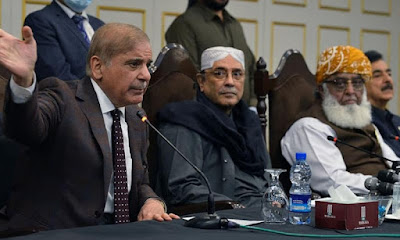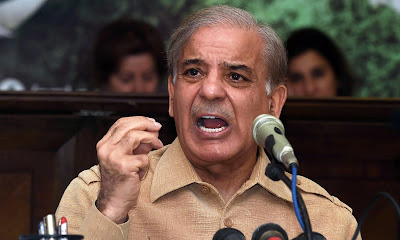Ibne Safi Great Urdu Writer
Ibn-e-Safi (also spelled as
Ibne Safi) (
Urdu:
ابنِ صفی) was the
pen name of
Asrar Ahmad (
Urdu:
اسرار احمد), a best-selling and prolific
fiction writer, novelist and poet of
Urdu from Pakistan. The word Ibn-e-Safi is an
Arabian expression which literally means
Son of Safi, where the word Safi means
chaste or
righteous.
[1] He wrote from the 1940s in India, and later Pakistan after the partition of British India in 1947.
[2] Biography
Ibne Safi was born on July 26, 1928 in the town 'Nara' of district
Allahabad, India. His father's name was Safiullah and mother's name was Naziran Bibi.
He received a
Bachelor of Arts degree from
Aligarh Muslim University. In 1948, he started his first job at 'Nikhat Publications' as an Editor in the poetry department. His initial works date back to the early 1940s, when he wrote from India. After the partition of Indian and Pakistan in 1947, he began writing novels in the early 1950s while working as a secondary school teacher and continuing part-time studies. After completing the latter, having attracted official attention as being subversive in the
independence and post-independence period, he migrated to
Karachi, Pakistan in August 1952. He started his own company by the name 'Israr Publications'.
[4]He married to Ume Salma Khatoon in 1953.
[1] Between 1960 - 1963 he suffered an episode of severe depression, but recovered, and returned with a best-selling
Imran Series novel,
Dairrh Matwaalay (
One and a half amused). In fact, he wrote 36 novels of 'Jasoosi Duniya' and 79 novels of 'Imran Series' after his recovery from depression. In the 1970s, he informally advised the
Inter-Services Intelligence of Pakistan on methods of detection. He died of pancreatic cancer on July 26, 1980 in
Karachi, which was coincidentally his 52nd birthday. He is survived by his son Omar Alboukharey.
Works
Ibne Safi's prose work can be classified into two categories:
Ibn-e-Safi started writing poetry in his childhood and soon earned critical acclaim in whole South-Asian community. After completing his Bachelor of Arts, he started writing short stories, humor and satire under various names such as "Siniki (Cynic) Soldier" and "Tughral Farghan." In the Nakhat magazines, he published several satirical articles which commented on various topics ranging from politics to literature to journalism. His early works in the 1940s included short stories, humor and satire.
According to one of his autobiographical essays, someone in a literary meeting claimed that Urdu literature had little scope for anything but sexual themes. To challenge this notion, Ibn-e-Safi began writing detective stories in January 1952 in the monthly
Nikhat, naming the series
Jasoosi Dunya.
In 1955, Ibn-e-Safi started the
Imran Series, which gained as much fame and success as Jasoosi Dunya. Ibne Safi's novels – characterized by a blend of adventure, suspense, violence, romance and comedy – achieved massive popularity by a broad readership.
So strong was Ibne Safi's impact on the Urdu literary scene that his novels were translated into several regional languages. It was not unusual for Safi's books to be sold at black market prices in Pakistan and India, where they were originally published every month.
The settings in Ibne Safi's novels are such that the reader is never told the national origin of the heroes. Since Jasoosi Duniya was created before the partition of the subcontinent, the names of the characters and their locales suggest that the novel takes place in India. The advent of the Imran Series came post-independence, and the reader is set up to assume that the narrative is situated in Pakistan. Besides their native countries, the main characters of both Jasoosi Duniya and Imran Series have had adventures around the world – Spain, Italy, England, Scotland, Pacific Islands, Zanzibar, South Africa, the United States of America, and various other places. Considering that Ibne Safi never left the Indian Subcontinent, the detailed descriptions he provides of the diverse localities are surprisingly accurate.
Many a time, Ibne Safi created fictitious settings for his stories. The magical web of his writing is so captivating that these fantasy lands have become real in the minds of readers. Avid fans of the author are experts on the people and cultures of Shakraal, Karaghaal, Maqlaaq, Zeroland, and many other imaginary domains. In cities around India and Pakistan, one can find discothèques, bars, night clubs, and hotels named after venues found in Ibne Safi's novels. Some places worth mentioning are: Dilkusha, Fizaro, Niagara, Tip Top, High Circle, etc.
Besides humor and satire he also wrote some short adventures, namely Baldraan Ki Malika (The Queen of Baldraan), Ab Tak Thee Kahaan? (Where had you been?), Shimal Ka Fitna (The Trouble from North), Gultarang, and Moaziz Khopri. In these adventures, Ibne Safi takes the reader to various fictitious, exotic lands of his own imagination.
Ibne Safi also directed a film 'Dhamaka' based on his novel 'Bebakon ki talash'. The film did not get the publicity and fame which it deserved, and remains mostly forgotten.
In 1959, Ibne Safi started writing Aadmi Ki Jarain, a book based on human psychology. However, it remained incomplete due to his illness.
In translation
The first English translations of Ibne Safi's mystery novels began appearing in 2010, with
The House of Fear from the Imraan Series, translated by
Bilal Tanweer and published by Random House India.
[5] In 2011,
Blaft Publications in association with Tranquebar released four more novels, this time from the
Jasusi Duniya series, translated by the highly acclaimed Urdu critic
Shamsur Rahman Faruqi.
[6]Bibliography
List of his non-series work
Quotes from Ibn-e-Safi's books
In
Urdu script: آدمی سنجیدہ ہو کر کیا کرے جب کہ وہ جانتا ہے کہ ایک دن اسے اپنی سنجیدگی سمیت دفن ہوجانا پڑے گا۔
Translation: Why should man ever become serious when he knows full well that one day he will be buried along with his seriousness? (
Black Picture)
In
Urdu script: صرف عمل اور ردعمل کا نام زندگی ہے. منطقی جواز تو بعد میں تلاش کیا جاتا ہے۔
Translation: Life is only action and reaction. The rationalizations are added later. (
AdLava)
In
Urdu script: حماقت پر افسوس کرنا سب سے بڑی حماقت ہے۔
Translation: Regretting stupidity is the biggest stupidity of them all.
In English (translated from Urdu By Dr. Ahmad Safi, son of Ibne safi): Why is it that an ordinary clerk has to pass the examination for clerkship, a police constable has to go through training as a recruit before he could be commissioned and on the other hand vegetable-selling middlemen, good-for-nothing feudals and imbecile merchants go sit in the Assemblies directly and start legisltating and some even become members of the cabinet (Jungle Ki Sheriyat. In
Urdu script: جنگل کی شھریت -Imran Series:102)
In English (translated from Urdu By Dr. Ahmad Safi, son of Ibne safi): I know that crimes committed by governments are not called crimes but diplomacy. A crime is only that which is committed in an individual capacity. (Jonk Ki Wapsi. In
Urdu script:چونک کی ؤاپسی Imran Series)
In English (translated from Urdu By Dr. Ahmad Safi, son of Ibne safi): Nuclear and Hydrogen Bomb experiments were beyond their comprehension. They could not figure out why a person is incarcerated in a mental asylum when he turns mad and why when a nation turns mad, we start calling it a Power (Anokhay Raqas. In
Urdu script: انوکھے رقاص - Jasoosi Dunya:65)
Dhamaka - A film by Ibn-e-Safi
"Dhamaka" was produced by Muhammad Hussain Talpur, based on the Imran Series novel
Baibaakon Ki Talaash (
Urdu for In Search of the Outreageous). Actor Javaid Sheikh (then Javaid Iqbal) was introduced as Zafarul Mulk, the main character. Muhammad Hussain Talpur (film producer) played the role of Jameson and actress Shabnam played the role of Sabiha. Imran and X-2's team was not shown in the movie. The voice of X-2 was recorded by Ibne Safi himself. Actor Rahman played the role of a Villain for the first time. The film featured a rendition of a ghazal by Habib Wali Muhammad, "Rah-e-talab mein kaun kisi ka", which was written by Ibn-e-Safi. The movie was released on December 13, 1974.
Poetry
(Note: Most of the English translations of Urdu poetry and titles are literal and do not capture the true essence of the language. Some meaning is definitely lost in translation.) Ibn-e-Safi was also a poet. He used to write poems under the pen name of "Asrar Narvi". He wrote in various genres of Urdu poetry, such as
Hamd,
Naat,
Manqabat,
Marsia,
Ghazal, and
Nazm. His collection of poetry,
Mata-e Qalb-o-Nazar (
Urdu for The Assest of Heart & Sight), remains unpublished.
Following is the list of his
Ghazals:
Daulat-e-Gham (
Urdu for The wealth of sorrow)
Zahan se Dil ka Bar Utra Hai (
Urdu for Heaviness of the heart is unloaded by the mind)
Chhalakti aayay (
Urdu for [The liquor] shows up overflowing)
Kuch to ta-alluq ... (
Urdu for Some affiliation ...)
Aaj ki raat (
Urdu for Tonight)
Baday ghazab ka ... (
Urdu for Of much might ...)
Yun hi wabastagi (
Urdu for Casual connection)
Lab-o-rukhsar-o-jabeen (
Urdu for Lips and Cheeks and forehead)
Rah-e-talab mein kaun kisi ka (
Urdu for In the path of demands, no one recognizes anyone)
Kuch bhi to apne paas nahin ... (
Urdu for Do not have anything ...)
Aay nigaraan-e-khoobroo (
Urdu for O gorgeous sculptures)
Kabhi sawab ki hain ... (
Urdu for Sometimes, of virtuousness ...)
Kabhi qatil ... (
Urdu for Sometimes killer ...)
Qafas ki daastaan hai ... (
Urdu for It is the tale of imprisonment ...)
Shakist-e-talism (
Urdu for Defeat of the magic)
Talism-e-hosh-ruba (
Urdu for The breath-taking magic)
Tanhayee (
Urdu for Solitude)
Bansuri ki awaaz (
Urdu for The sound of flute)
Death
Ibne Safi died on the mid night of July 25, 1980 at 5.00 AM. He was buried in Paposhnagar graveyard on July 26, 1980. The body was laid in the grave by Mushtaq Ahmed Qureshi (ex treasurar and joint secretary of All Pakistan Newspaper Society). Funeral was attended by a large number of citizens, admirers, journalists etc. The details of his last moments is mentioned in an article named bayad ibne safi.
[2].
[3]![]() صرف ایک بین الاقوامی موبائل کمپنی کے عہدیداروں کے زیراستعمال گاڑیاں فروخت کرنے سے جو رقم حاصل ہوگی، اُس سے روانڈا، برونڈی اور ایتھوپیا کا قحط دُور ہوسکتا ہے۔
صرف ایک بین الاقوامی موبائل کمپنی کے عہدیداروں کے زیراستعمال گاڑیاں فروخت کرنے سے جو رقم حاصل ہوگی، اُس سے روانڈا، برونڈی اور ایتھوپیا کا قحط دُور ہوسکتا ہے۔ 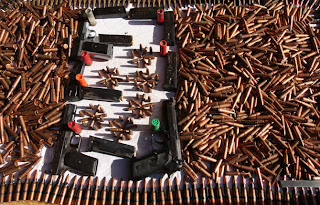 صرف ایک بین الاقوامی موبائل کمپنی کے عہدیداروں کے زیراستعمال گاڑیاں فروخت کرنے سے جو رقم حاصل ہوگی، اُس سے روانڈا، برونڈی اور ایتھوپیا کا قحط دُور ہوسکتا ہے۔
صرف ایک بین الاقوامی موبائل کمپنی کے عہدیداروں کے زیراستعمال گاڑیاں فروخت کرنے سے جو رقم حاصل ہوگی، اُس سے روانڈا، برونڈی اور ایتھوپیا کا قحط دُور ہوسکتا ہے۔ 
































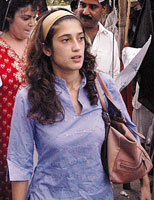


.jpg)
.jpg)
.jpg)
.jpg)








































































